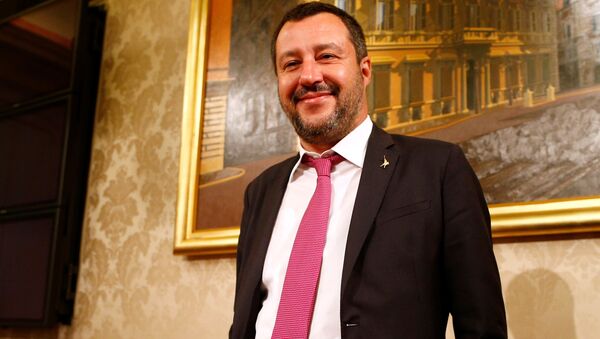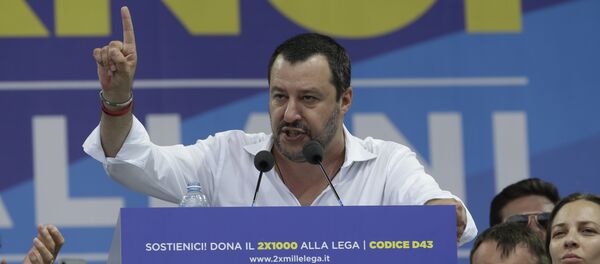"We are building a community, a family. I am working on a new European project," Salvini announced at an event titled "Towards a Common Sense Europe!" in Milan.
READ MORE: Italy's Salvini Hopes to Forge Eurosceptic Alliance Ahead of EU Vote in May
Salvini added that while many European citizens were "dissatisfied with the European Union," the alliance would work to bring "work, family, security and the future of the youth in the centre of attention."
"It is the alliance that looks in the future. We will start from today, and from today our family will enlarge," Salvini said.
The alliance of right-wing European parties that Matteo Salvini is building ahead of the European Parliament elections is focusing on the bloc's security issues, member of the alliance and a representative of the Danish People's Party, Anders Vistisen, said.
"What is important in this alliance is that we want security for the European Union. We will insist that the European peoples' security is much higher on the agenda than it has been in the past," Vistisen said.
Vistisen pointed out that the bloc had to fight "the threat coming from fundamental Islamism."
Joerg Meuthen, the federal spokesman for the German Alternative fur Deutschland party, Olli Kotro from The Finns Party and Anders Vistisen, a member of the European Parliament from the Danish People's Party, were present at the event.
"The name of the alliance, which we signed up to this morning, is the European Alliance of People and Nations, or EAPN… At the moment, we are four parties. But when the last plenary session in Strasbourg ends on 18 of April, till this day I am sure we will have at least 10 member parties of our alliance," Joerg Meuthen said.
Meuthen explained that there was a 50/50 percent chance that Hungarian Prime Minister Viktor Orban and his Fidesz party might join the group.
"For the Polish PIS [Law and Justice] party, I know that they have in mind to stay in the ECR [European Conservatives and Reformists group] group. We will see what happens. If they want to join our group, they are completely welcome. But they need to decide themselves," Meuthen said.
The German politician explained that the alliance's aim was to work together after the European Parliament elections as a single group inside the institution.
"We want to have good relations with Russia from the side of the European Union. At this time, they are not as they should be. That is one of the points that we want to change. We are very much interested in having good and close relations with Russia. For example, we want to abolish [Russia] sanctions," Meuthen said.
According to Meuthen, the aspiration for better relations with Moscow will be one of the main political objectives of the future bloc.
"It will be one of the points of the platform, for sure," Meuthen added.
The elections to the EU legislative body will be held on May 23-26. It will be the legislature's ninth convocation and will have 46 fewer members — 705 instead of 751 — due to the United Kingdom's expected exit from the European Union.





